Just a stone’s throw from Europe, Tunisia is on the Mediterranean coast, halfway between the Nile and the Atlantic Ocean. Tunisia has everything to meet your needs, whether you desire to explore and stroll the sites or treat yourself to the beaches covered with sunshine, we’ll share some tips for applying for Tunisia visa in this post.
Tunisia is a North African nation with access to the Sahara Desert and the Mediterranean Sea. Regarding tourism, the nation presents a wealth of attractions, including golden, sunny beaches, archaeological monuments, and historic ruins.
Over eight million people come to Tunisia every year. Still, you must find out what the visa and other requirements for Tunisia are before booking a visit. This informative article addresses your questions about visa requirements and the application process.
Rising from its capital, Tunis, Tunisia is a nation in North Africa with access to the Sahara Desert and the Mediterranean Sea. Regarding tourism, Tunisia presents many attractions like golden, sunny beaches as well as archaeological monuments and ancient ruins. Tunisia draws almost 8 million visitors annually.
Five Mistakes That Prevents A Successful Visa Application Process And Tips for Applying for Tunisia Visa

These tips for applying for Tunisia visa will help you ensure that your visa application proceeds as smoothly as it should! Knowing five of the most regularly occurring ones below may help you avoid missing your intended journey path.
1. Match the Official Documentation With the Form
Applicants completing a visa application form must follow their trip records and provide all the required information. Common errors on the visa application form are erroneous information on the name, passport number, or date of birth not showing as it is in the passport.
Although this might seem obvious, most people produce material that contradicts their official papers or identity evidence. Writing it in any other manner will cause your visa to be granted with false information should the person have first and last names entered in the reverse sequence on the official documentation.
2. Consult the Criteria Tailored for your Country
A checklist is a really useful tool for creating a fool-proof programme. One of the most regularly committed mistakes by applicants is not consulting the checklist or a defined checklist for visa applications, thereby missing out on providing the required evidence upon submission.
Remember, too, that different countries have varying documentation requirements. A customized, destination-specific list conveniently available on the VFS Global information pages comprises all the documentation required for a visa application to that particular country.
One missing paper could render the application unusable. Before applying for the visa, cross-check items that should be delivered with the country-specific checklist.
3. Get Acquainted with your Bank Statements
Certain nations want candidates to forward completely verified bank statements. While most tourists know about this process and bank statements are usual, not having them verified is a regular error. Sending the verified bank statements shows your financial capacity for the trip and your credit cleanliness.
4. Cutting it Too Close to the Travel Date
Depending on each country, processing a visa application takes different turnaround timeframes that also affect high travel seasons. Many times, guests leave their visa applications last minute, therefore giving themselves little time to thoroughly follow the checklist and ensure every necessity is met. Most nations allow applications up to 90 days before the travel date; applying for a visa far in advance gives enough time to deal with any unexpected delays.
5. Check the Accuracy of Sponsor Data
The visa ruling mostly relies on the sponsor data, which helps authorities understand the applicant’s support structure in the place of travel if needed. Therefore, it is imperative that we enter the required facts in the sponsor part of the Visa Application Form and forward relevant sponsorship papers that are compliant with national travel regulations.
Though they appear to be simple errors, they could cost a visitor their visa. Offering every single detail as asked in the relevant papers, coupled with suitable proof, will help ensure a flawless and hassle-free visa application process.
Starting the visa application process well before the intended travel date is crucial if one wants enough time.
Visa Requirements for Tunisia
Should you be planning a trip to Tunisia, your nationality and the reason for your stay will determine if you require a visa to enter the country. Tunisia issues tourist, business, or study visas; following the policies will assist you in applying with ease.
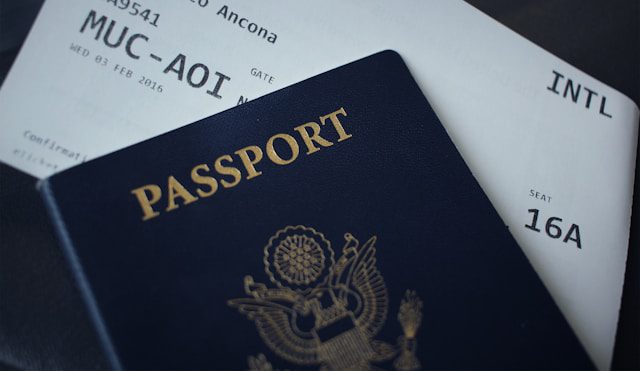
- Before looking for a Tunisia visa, be sure you have all the necessary paperwork, fees, and information and check the requirements for your type of visa. The criteria will depend on your nationality and the duration and purpose of your trip to Tunisia. For example, you might be asked to present a current passport, proof of a travel schedule, hotel details, or a letter of invitation from a Tunisian host.
- Once you know what criteria your visa requires, you may start finishing the application. You can complete your Tunisia visa application either personally at a consulate or Embassy in your country or online. Ensure the application presents accurate and complete facts, including your personal information, travel schedule, and phone number.
- A picture is one of the most important requirements for a Tunisia visa application. You have to turn in a recent passport-size image that meets the specific size, style, and background criteria. The photo must be in colour, with a white background, and your face should be exactly viewed free from shadows or reflections.
- After submitting your application, the processing of your visa could take many days or weeks, so you may have to wait. Once your visa is approved, you can visit Tunisia and enjoy its rich history, culture, and landscape. Still, follow the visa policies and limitations during your stay in Tunisia to avoid administrative or legal issues.
How to Determine the Type of Visa You Need
Choosing the type you need marks the first stage of your visa application from Tunisia. Tunisia offers many types of visas depending on your reason for visiting: tourist, business, study, or family reunion visa. Every visa type has varied validity periods, processing timeframes, and restrictions; hence, choosing the right kind that meets your travel plan is important.
To find the type of visa you need, check the Tunisian Embassy or consulate in your country or the official website of the Ministry of Foreign Affairs. Through the visa application process, a travel agency or a lawyer can also assist you with documentation and guidance.
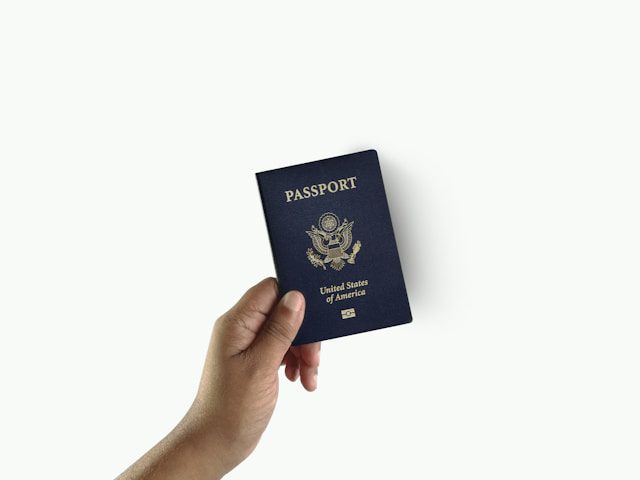
Consider these factors as you select a type of visa:
- Whether your journey is for business, pleasure, study, or another reason, you must choose the visa type best for your itinerary. Tunisia: If you are visiting a conference in Tunisia, you could need a business visa; if you are a student at a Tunisian university, you could need a student visa.
- The validity and length of your stay will depend on the type of visa you apply for and the reason for your visit. Business visas, for instance, may have limited validity, while tourist visas are usually good for up to 90 days.
- Entry and exit requirements vary depending on the type of visa; some allow only one visit or departure from Tunisia, while others allow many entries. Choose the visa that best suits your trip needs so you can transit to Tunisia without issues.
- Selecting the type of visa you need will enable you to begin organizing the necessary documentation, finishing the application form, and fulfilling the visa conditions, ensuring a flawless and effective visa application process.
- Confirming the rules of your visa type: Next is looking at the requirements for the visa type you have selected you need for your trip to Tunisia. Although the type of visa will determine the criteria, normally, you will need to provide the following:
- Your passport must be valid for at least six months after your expected departure from Tunisia and have at least two blank pages for the visa stamp.
- You must accurately and completely fill out the Tunisia visa application form containing your personal details, trip plans, and other facts.
- Photo: You must supply a recent passport-sized image that meets Tunisia’s size, backdrop colour, and quality requirements.
- If you are seeking a student visa, you may have to provide supporting papers, including a letter of invitation, hotel bookings, airline tickets, evidence of income, or a certificate of enrollment, depending on your visa type.
- The visa fee you have to pay will depend on the category and processing time chosen: To help prevent delays or denial of your visa application, closely check the criteria for your type of visa and get all the necessary documentation ahead of time. You also have to apply long before your trip if you want enough processing time.
Tunisia Visa Application Form Filling Tips for Applying for Tunisia Visa
Applying for a visa to visit Tunisia begins with meticulously completing the Tunisia Visa Application form. Usually, your country’s Tunisian embassy or consulate website provides the application form online. These directions will help you to correctly finish the Tunisia visa application form:
- Before starting the form, review the instructions and suggestions provided on the embassy website. This will help you avoid mistakes and understand the requirements better.
- The visa application form asks you to input personal information, travel plans, reason for visit, and further details. Please fully and precisely complete all the fields. Check the spelling and other details of your name to help avoid errors.
- Using capital letters can help you simplify the application form and understand it better. Avoid using invisible symbols or acronyms.
- Verify that the information on your application form matches that on your other supporting documentation, including your passport, trip plans, and hotel bookings.
- Once you have completed the form, verify and date it. Unsigned forms or ones without signatures could be turned away.
- Once the application form is completed, forward it together with the required supporting documentation—your passport, photo, and evidence of trip arrangements.
- Following these rules will increase your chances of obtaining a visa to enter Tunisia and help you ensure the correct completion of the Tunisia visa application procedure.
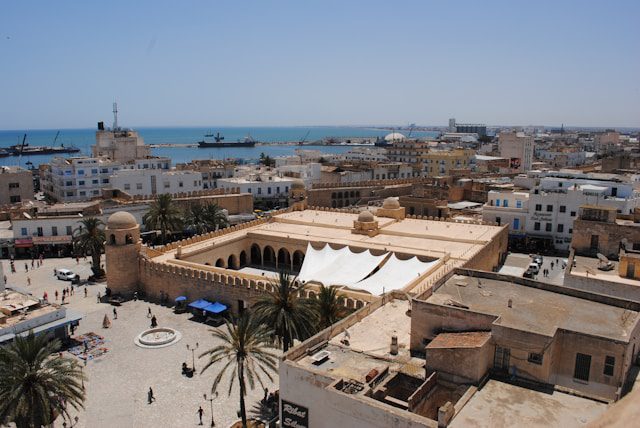
Meeting the Criteria for Your Tunisia Visa Documents Based on the Visa Regulations To Stay in Tunisia
Complying with the documentation requirements for your Tunisia visa is an essential first step in the visa application process. Your specific circumstances and the type of visa you are looking for will dictate the documentation you must provide. These guidelines will help you to meet the requirements for documents for your Tunisia visa:
- Visit the embassy website: The Tunisian consulate or Embassy in your country will have the required documentation for every type of visa available. Visit their website or directly contact them to obtain the most recent statistics.
- Once you know what you need, get all of the required paperwork ahead of time. Here, you could put your passport, visa application form, picture, proof of travel plans, travel insurance, bank statements, employment letter, invitation letter, and other supporting documentation.
- Check your documentation’s validity and completeness: Your passport must be current at least six months before your planned trip to Tunisia. Your supporting documentation must also be authentic, not altered in any form or faked.
- Translate your paperwork: If your papers are written in a language other than English or French, you may have to provide a certified translation. The consulate or Embassy can help you determine whether this is required.
- Be sure to copy your documentation before submitting your visa application. Keep the originals in a safe place; travel carrying the copies with you.
- Send your documents with your visa application; be sure you send all the required documentation. Ignorance of all the necessary paperwork could lead to application rejection or delays.
Following these recommendations will increase your chances of obtaining a Tunisia visa and help you meet the criteria for it, allowing you to enter the country.
All you Need to know About Tunisia Visa Policy
Most nationalities visiting Tunisia for business, travel, or transit follow simple entrance policies. Tunisia’s visa waiver policy covers 97 countries, including EU and United Kingdom members.
Valid British passports allow UK citizens to visit Tunisia without a visa and stay at least ninety days each time. Relevant under any visa-free regime, you must carry some regular documentation to use the visa-exemption facility. These are:
A passport is valid from Tunisia’s departure date for at least three months. Still, it is advised that you to provide a passport with minimum six-month validity. For the necessary entry and exit stamps, kindly also ensure they have enough, at least two empty pages and also:
- Provide proof of sufficient funds for your trip to Tunisia.
- Forward or returning airline passes
- Documents summarising your trip’s objective
- Important documents for the next stop
- Find out also whether your airlines allow boarding without a visa
- Find out from your carrier whether they have overseas connection flights requiring another separate transit visa.
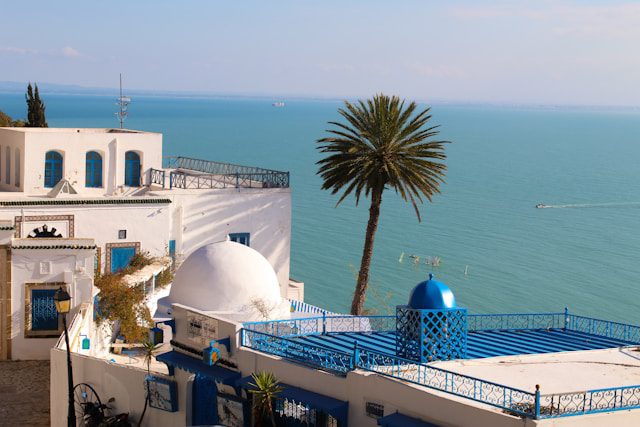
Tunisia Visa Fee and Processing Timetable
If you intend to visit Tunisia, you might have to apply for an eVisa. Apart from fulfilling the documentation criteria, knowing the fees and processing times connected to acquiring a Tunisia eVisa is crucial. Here are some factores that influence the processing time.
- Getting a visa for Tunisia costs is based on the kind of visa and processing period. For some nationalities, Tunisia provides an eVisa system whereby visitors can apply online and get their visas emailed. The procedure is usually speedier and more practical than conventional visa applications.
- Tunisia’s eVisa cost depends on your reason for travel and length of stay. Apart from the visa cost, processing and service charges could also be extra depending on how you apply for the eVisa. For instance, pay extra for the services of a travel agency or visa processing business applying for your eVisa.
- The volume of applications the Tunisian authorities receive will affect the processing time for a Tunisia eVisa. It is advised that you generally provide enough processing time when applying at least two weeks before your intended travel dates. Still, occasionally, the eVisa might be issued in a few business days. In urgent circumstances, you can also apply for an express eVisa; these can be handled in 24 hours for a further cost.
The processing time is not guaranteed; hence, delays could arise from several sources, such as background checks or incomplete applications. Planning your journey to Tunisia depends on knowing the prices and processing periods of acquiring a Tunisia eVisa. Plan ahead and provide adequate time for the application procedure to prevent any last-minute problems.
Tunisia e visa Approved Payment Methods
The Tunisian government welcomes many payment options for the eVisa application cost. Although the website or platform used to apply for the visa will determine the precise payment methods that are accessible, generally, these are accepted:
- Most e-Visa application systems allow big credit and debit cards, including Visa, MasterCard, and American Express. Applications must include their card details so that they may pay with a card.
- PayPal: Certain eVisa application systems also take PayPal payments. To use this option, applicants must have a current PayPal account and choose the PayPal payment method throughout the application process.
- Sometimes, applicants can pay the eVisa application cost by bank transfer. This choice might, however, not be accessible on all systems and might require more processing time.
It should be mentioned that the particular payment options and methods could differ depending on the eVisa application platform applied. Candidates should closely review the payment instructions given throughout the application process to guarantee that they choose the right payment method and finish the payment procedure properly.
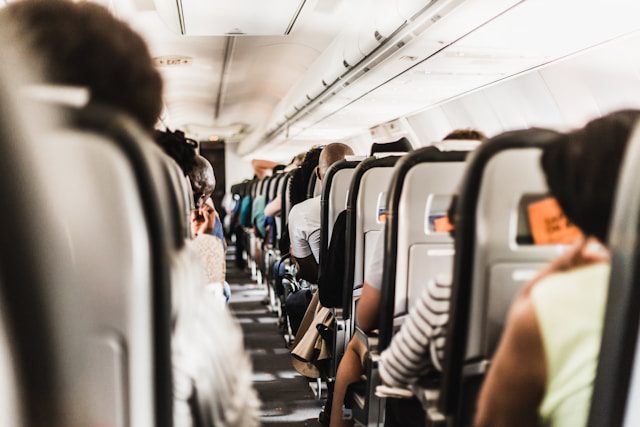
Furthermore, applicants should be advised that the eVisa application fee is non-refundable regardless of visa approval. To prevent needless expenses, it is thus crucial to ensure that all application criteria are satisfied and that the application is turned in accurately.
Reasons Tunisia Visa Application Is Denied
Many people schedule overseas travel during the holidays; hence, one common disappointment they could face is a visa rejection, usually resulting from mistakes in the visa application.
Along with advice to avoid these mistakes and guarantee a seamless Tunisia visa application interview process, here are some of the most often occurring causes of visa refusal by Tunisia:
1. Incongruous Information in Correspondence with Official Documents
The challenge is that, when filling out a Tunisia visa application form, you must supply all the required information exactly as it shows on your official travel records—including your passport. Typical mistakes include variances in names, passport numbers, or birth dates.
Check to be sure the details on the visa application form match your official records. Make sure you apply using the same format, even if your official documents contain your first and last names in reverse sequence.
2. Ignoring Nationally Specific Checklists
Many candidates ignore the need to consult the country-specific checklist when preparing for their visa application. Instead, they sometimes rely on a set checklist, which causes important paperwork to be omitted.
Documenting standards vary across nations. To be sure you include all required paperwork for your visa application, review the destination-specific checklist on the information pages. One missing document could cause an application to be insufficient.
3. Inaccurate Attest Bank Statements
The issue is that certain nations require candidates to send fully certified bank statements. Many tourists know this need, yet they often overlook getting their bank statements attested.
Ensure your bank records accurately attest to your creditworthiness and financial stability for the trip.

4. Applications for Last-Minute Visas
The issue is that processing timeframes for visa applications differ among nations; high travel seasons might thus have a further impact. Some people put off applying for visas near their trip dates, needing more time to satisfy all criteria.
Most nations allow visa applications up to ninety days before the anticipated trip date. Starting well ahead gives a buffer for any unanticipated processing delays.
5. Erroneous Sponsor Details
The problem is that supplying false or insufficient information when sponsorship details are needed could result in visa rejections. Officials need these specifics to understand the applicant’s support network in the target nation.
Ensure you correctly enter the sponsor part of the Visa Application Form and send any pertinent sponsorship documentation in line with the national guidelines you intend to follow.
6. Insufficient Financial Proof
One of the main causes of visa refusal is neglect to provide appropriate financial proof. This includes showing insufficient money for travel expenses or offering unverified financial records.
Ensure you have adequate money for your trip and submit clear, verifiable financial records such as pay stubs, bank statements, or sponsorship letters.
7. Unfinished Travel Agenda
Visa refusal can result from a hazy or inadequate travel schedule. For visa officials, not stating your anticipated travel dates, destinations you intend to visit, or hotel specifics can cause questions.
Send a thorough travel schedule with your intended arrival and departure times, places you will visit, and lodging bookings. This establishes your sincere trip plans.
8. Insufficient Travel Insurance
The issue is that many times, travel insurance is a visa requirement. Visa refusal can result from the need for more travel insurance covering possible emergencies and medical costs.
Purchase a thorough travel insurance plan that covers medical crises, trip cancellations, and other unanticipated situations and meets the needs of the destination country.
9. Criminal Record or Former Visa Violations
The problem is that visa refusal may follow from a criminal record or history of visa infractions in the target nation. Visa officials can view you as a possible security risk or someone prone to overstaying your visa.
See the embassy or consulate to find out your eligibility for a visa and take the required action to allay any issues they may have if you have a criminal record or past visa violations.
10. Improper Application Filling
Filling out the visa application form improperly or incompletely is a common mistake in 10. Only complete or accurate Visa Applications. This covers missing pieces, failing to provide necessary information, or applying the incorrect visa type.
Review and complete the visa application form carefully according to the given directions. Then, before submission, review it again for any mistakes or omissions.
11. Insufficient Strong Ties to Home Country
Visa officials could worry if they think you have little ties to your country. This can raise questions about your willingness to return after the trip.
Evidence showing your plan to return home—such as job letters, property ownership, family ties, or other obligations—will help you to create solid relationships.
12. Barrier of Language
The issue is that language problems can prevent you from communicating clearly in written letters or during the visa application, which can lead to misinterpretation and visa rejections.
If necessary, ensure you have access to a translator or interpreter throughout the visa application process and interviews.
Correcting these typical problems and promptly and precisely supplying all necessary documentation will help you increase your chances of a successful visa application to Tunisia. Researching Tunisia’s particular needs and speaking with the embassy or consulate will help each nation, which may have specific criteria and issues.
Tunisia Visa Frequently Asked Questions
1. Does Sending My Passport Determine Whether or Not I will Get a Tunisian visa? Should One Send a passport? Is that Safe?
Sure. Not a copy of your passport; you will have to provide your actual one. One of your passport pages will reflect the Tunisia visa stamped on your passport.
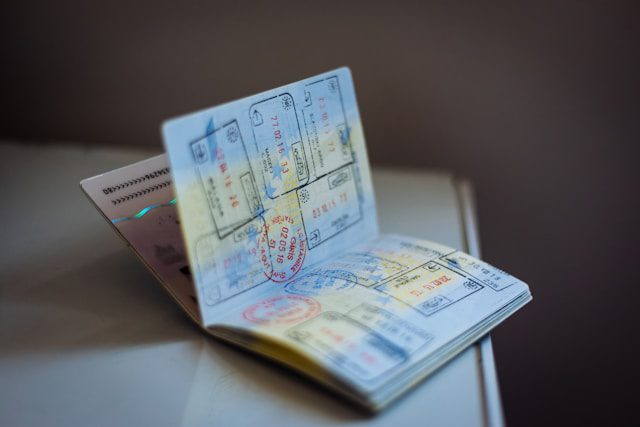
Processing a Visa application requires your real passport. Given the worth of your passport, we strongly suggest you send your application safely, such as through a guaranteed postal service or courier.
2. How can I get visa for Tunisia from Nigeria?
Apply these guidelines to obtain a visa for Tunisia from Nigeria:
- Get and complete your Tunisian visa application form.
- Prepare the required paperwork including a current passport, passport-sized pictures, evidence of lodging, evidence of financial situation, and trip schedule.
- Send your application together with the supporting paperwork to the consulate or embassy of Tunisia in Nigeria.
- Pay the necessary visa fee.
- Attend an interview if necessary.
Processing: Wait for the visa to be approved then pick your visa.
3. How long does it take to get Tunisian visa?
Usually ranging from 10 to 15 business days, a Tunisian visa takes processing time. Still, it can change depending on the applicant’s nationality, the amount of applications, and particular situation.
4. What are the 4 main steps to getting a visa?
Obtaining a visa consists on four key steps:
- Apply for a visa specifically for the given nation.
- Get and ready all the necessary documentation: a current passport, pictures, evidence of income, travel schedule, any other particular document asked for, etc.
- Send the finished application form and pertinent supporting documentation to the pertinent consulate or embassy.
If necessary, go to an interview; meantime, wait for the visa application to be handled. Pay the visa cost then pick up the visa once approved.
5. Qualification For A Visa?
- Meet all qualifying requirements established by the nation you are seeking to apply to.
- Complete Application: correctly and totally complete your visa application form.
- Send all necessary supporting documentation—a valid passport, pictures, evidence of financial resources, travel schedule, and any other particular document asked for.
- Show up for all necessary visa interviews and give honest, open responses.
- Pay the relevant Visa Processing Charges.
- Show intention. Show that, should you be seeking for a temporary visa, you intend to follow the Tunisia visa requirements, including returning home following the visit.
6. How can I get visa for Tunisia?
Use these instructions to obtain a Tunisia visa:
- Get and complete your Tunisian visa application form.
- Prepare the required paperwork including a current passport, passport-sized pictures, evidence of lodging, evidence of financial situation, and trip schedule.
- Send your application to the Tunisian embassy or consulate in your own nation together with the supporting documentation.
- Pay the relevant visa cost.
- Attend an interview if necessary.
- Processing: Wait for your visa to be approved then pick it up.
7. In Tunisia, Who Needs Visa?
The nationality of the visitor determines the visa requirements for Tunisia. Those from several nations, including most European Union members, the USA, Canada, Australia, and Japan, can enter Tunisia without a visa for brief stays often lasting up to ninety days. To enter Tunisia, however, citizens of nations such Nigeria, India, and China usually need a visa.
8. How might I obtain a work permit in Tunisia?
Here’s how you obtain a work permit in Tunisia:
- Employer from Tunisia should send you a job offer.
- Your company has to seek for a work authorization from the Tunisian Ministry of Employment and Vocational Training.
- Get a temporary residence permit from the Tunisia local police force.
- Once the work authorization is obtained, seek for the work permit at the pertinent Tunisia authorities.
- Send in all necessary documentation: your passport, employment contract, evidence of qualifications, medical certificate.
- Approval: Hold off till the application for a work permit is handled and approved.
9. A Tunisian visa has a validity period of what?
The type of a Tunisian visa issued determines its validity length. Usually lasting up to ninety days throughout a 180-day period, short-stay visas Depending on the particular reason and requirements, long-stay visas—for employment, education, or family reunion—can last several months to a year.
10. Why Would One Want a Tunisian Work Permit?
Obtaining a Tunisian work permit lets you:
- Legally Work: Find legal job in Tunisia.
- Residence: Spend your working years living in Tunisia.
- Family Inclusion: Occasionally let family members live with you under your residence permit.
- Social Security: Get advantages for healthcare and social security.
11. Does Visiting Tunisia Call for a Visa?
Citizens of many nationalities need a visa to enter Tunisia. The country of origin shapes the differences in the visa requirements. Ask your national consulate or Embassy of Tunisia for specific visa requirements.
12. How Can I Apply For Tunisia Visa?
Apply for a Tunisia visa through your national consulate or Embassy. The type of visa you require will influence the application process. You may be required to provide documentation, including proof of travel, a passport, and financial means proof.
13. With what processing time does a Tunisia visa apply?
Processing time for a Tunisia visa depends on whether the consulate or Embassy handles your application and the visa you seek. Applying for a visa far before your expected trip dates will give you ample time to process it.
Final Words
Travellers from all around the world find Tunisia a fascinating place because of its unusual position and varied attractions. Whether your lure is its sun-kissed beaches, historic ruins, or energetic culture, a hassle-free trip depends on a seamless visa application process. Following the advised guidelines and avoiding typical errors can help you increase your chances of getting a Tunisia visa.
To confidently start your Tunisian journey, ahead of time organise the required paperwork, then carefully finish the application. Travel safely and savour the rich legacy and breathtaking scenery Tunisia presents!


